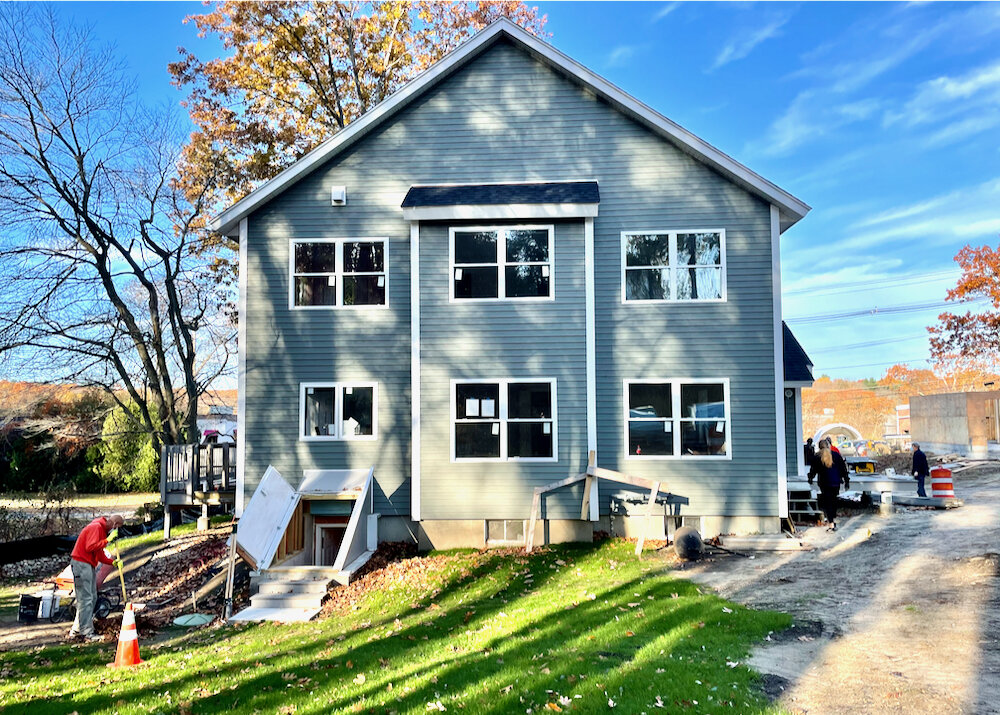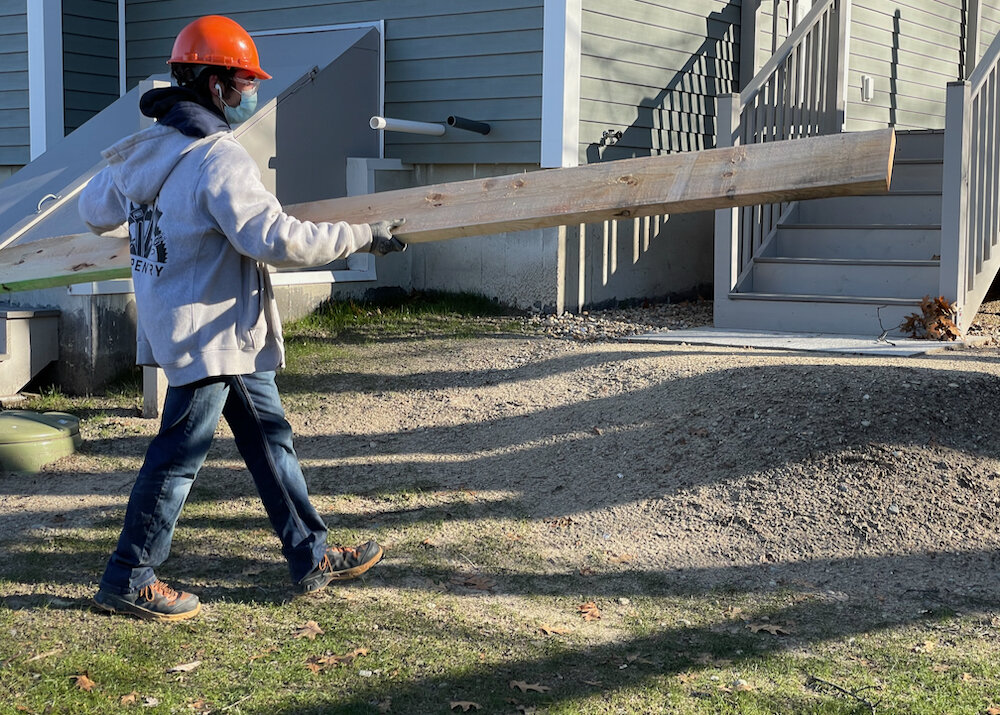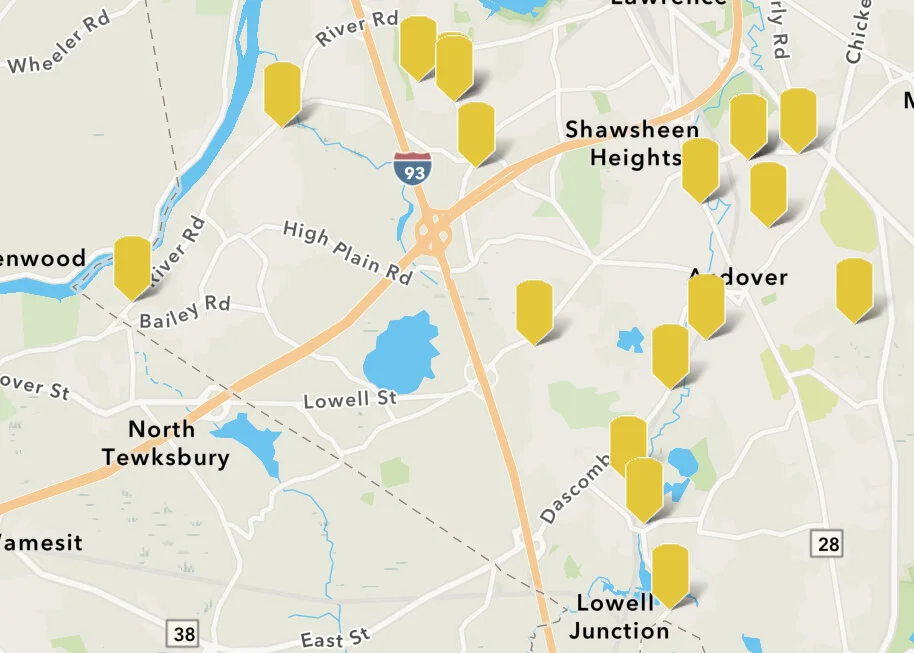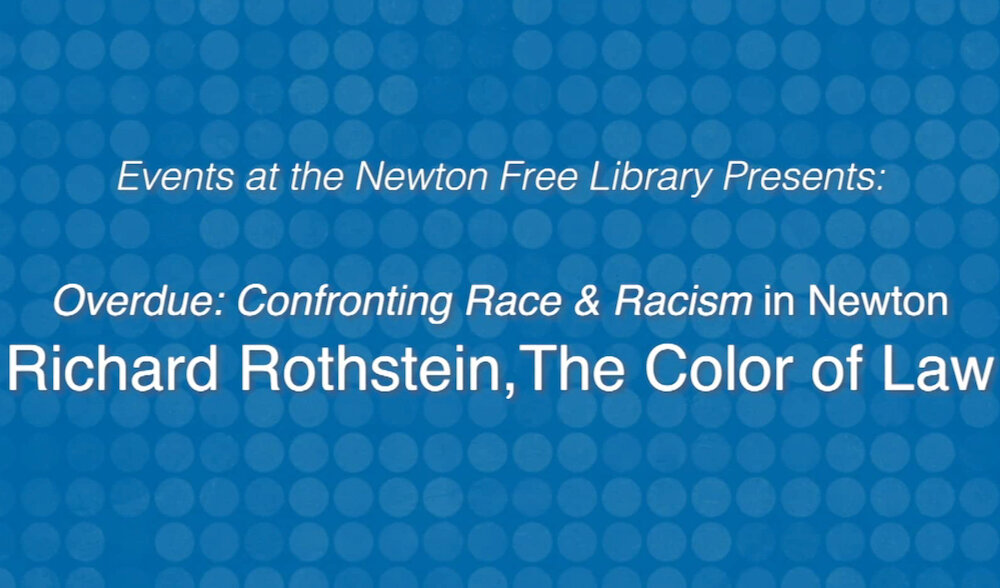
Housing Affordability
Housing is about much more than buildings. It’s about home, community, health, resilience and equity.
Benefits of Economically Mixed Housing.
We all contribute to making our communities better places. As towns like Andover grow and prosper, they experience increasing land and housing prices. While this is very good news for property owners, it makes it more difficult for potential homeowners to get into the market. Community Land Trust housing is a proven way to provide low income, moderate income and communities of color an opportunity to get into the housing game.
The places where people live matter a great deal in their economic mobility. A study by the Pew Charitable Trusts shows that the more economically segregated an area is, the less economically mobile its residents are. Descendants of poor families living in low-mobility metro areas will take four generations to reach their metro area’s mean income, while the descendants of poor families living in high-mobility metro areas will need only three. Source: Pew Charitable Trusts
In addition, there is significant value in both economic and racial diversity to the entire community. Research has shown that racial diversity has numerous benefits, including improved academic achievement, enhanced intergroup relations, and positive long-term life outcomes. Each is important for developing community well-being and social cohesion. In particular for schools, Amy Stuart Wells, Lauren Fox, and Diana Cordova-Cobo of Teachers College Columbia demonstrate in their report on How Racially Diverse Schools and Classrooms Can Benefit All Students that diversity makes us smarter. The authors write “researchers have documented that students’ exposure to other students who are different from themselves and the novel ideas and challenges that such exposure brings leads to improved cognitive skills, including critical thinking and problem-solving.”
Homeowner Cost.
The home ownership cost of living in Essex County is 50% higher than for the U.S. as a whole. According to the federal census bureau, the median property value in Essex County is 5.4 times the median household income while for the United States as a whole that ratio is about 3.6 times. This means that Essex County housing is much less affordable for prospective residents. The heart of ACT’s work is the creation of homes that remain permanently affordable, providing homeownership opportunities for generations of lower income families.
Homeownership is more than the primary means of wealth building for families in the United States. Homeownership provides stability for a family. Landlords won’t increase rental rates unexpectedly. An address remains stable for years rather than for months. Children can remain in the same school.
Learn About Affordability in Andover.
The town of Andover currently has over 13% of its housing stock as affordable, which is higher than the state average, and can be higher still. We have apartments, condominiums and single family homes that are permanently affordable, both public housing and private.
Importantly, The Executive Office of Housing and Livable Communities (EOHLC), formerly known as the Department of Housing and Community Development (DHCD), is charged with creating more homes in Massachusetts and lowering housing costs for residents. Its policy allows rental developments that designate 25% of their units as affordable, for households that earn less than 80% of Area Median Income, to add all units within the development to their subsidized housing inventory (SHI). That means that although we have over 13% of our housing stock designated as affordable, most of the rental units with that designation are not in fact rented at affordable rates. That’s 75% of all EOHLC affordably-designated rentals that are not affordable.
We have teachers, police officers and other individuals who work in town and cannot afford to live in town. By understanding the current state of our affordable housing, you can participate more fully in advocating for locally affordable housing.
Learn About de jure Segregation.
Everyone in the U.S. needs to learn the history of de jure segregation, or legalized segregation of Black and White people. De jure segregation lasted from the 1880s to 1964 and was present in almost every aspect of life; law and policy were enacted and enforced at the local, state and federal levels that promoted discriminatory housing practices. Specifically the post-WWII lending practices of the FHA and the GI bill excluded people of color by not insuring housing developments where Black people lived. The federal government intentionally provided a benefit to white people and excluded Black people.
The results of these laws and policies not only created the segregated communities we now have, they are a primary cause of the racial wealth gap we see today between whites and Blacks in the United States. While people of color were excluded, whites were able to take advantage of wealth building by owning land and homes whose value has escalated over the decades.
Today, communities continue to use zoning to effectively exclude low income and minority residents from moving into neighborhoods.
Consider reading or watching one of the following on systemic racism in housing.
Learn About Upzoning and Exclusionary Zoning
Check out this Sightline Video on Upzoning and how we can get there.
Learn About Community Land Trusts.
Andover Community Trust or ACT was founded as a community land trust (CLT) with a focus on building modest family permanently affordable homes that blend into existing neighborhoods. While our scope has grown to support a wide-range of affordable housing in Andover, we continue to rely on the CLT model to build new family homes in town. A community land trust is a nonprofit corporation that holds and manages land in the community’s interests. Land is preserved and used for homeownership opportunities for low- and moderate-income families. Separating the ownership of the land and controlling the resale price of the home ensures that access to a CLT’s land and to the buildings on it remain affordable forever, one generation after another. As citizen-led initiatives, CLTs may have varying goals such as:
most commonly, developing and stewarding affordable housing
preserving Main Street for locally owned businesses
improving substandard housing and civic buildings
ensuring local farms produce food for local people
establishing sites for community supported industry
developing strong neighborhoods for full-time residents with local jobs
maintaining other local resources on behalf of a community.
The benefit of the CLT’s structure, strong legal mechanisms, resale formulas, and program stewardship is permanent access with long-term affordability. In Andover, this model gives families earning below 80% of the area median income a chance for a better life and homeownership, while preserving affordability and safeguarding the public investment for generations to come. Additionally, the lives of current residents are improved by fostering inclusivity and breaking barriers that restrict access to opportunity.
There are abundant resources for your own education, to share with others, to see models of other community land trusts in action. Here are a select few to get you started.

“Only if we can develop a broadly shared understanding of our common history will it be practical to consider steps we could take to fulfill our obligations.”
— Richard Rothstein, The Color of Law
Let’s get to know one another and work together for Affordable Housing in Andover
Sign up to be the first to know about our events and what’s happening at Andover Community Trust











